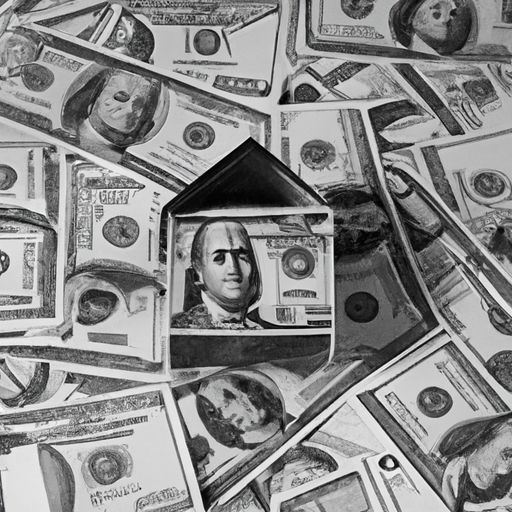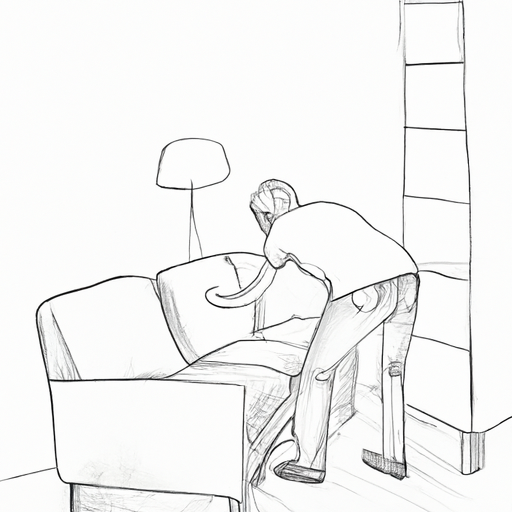Selling a home involves financial considerations such as real estate agent fees and closing costs. The article examines the costs associated with selling a home, including agent fees, handling costs and ways to minimize costs. Financial planning is important when selling a home and includes consideration of agent fees, staging and renovations, and marketing costs.
Selling a home is a major financial decision that often comes with many costs. From real estate agent fees to closing costs, there are various costs that sellers must consider. Understanding the financial implications of selling your home is critical to successfully managing the process and maximizing your returns. In this article, we’ll take a look at the costs associated with selling a home and uncover hidden costs that can catch sellers off guard. In addition, we will look at strategies to minimize these costs and provide advice on budgeting for the entire sales process. Whether you’re a first-time seller or a seasoned homeowner, this comprehensive guide will help you make informed financial decisions throughout the selling journey.
- 1. “Understanding the Financial Implications: Calculating the Costs of Selling Your Home”
- 2. Cost Allocation: The Complete Guide to Selling a Home
- 3. “Hidden costs revealed: disclosure of unexpected costs from selling a house”
- 4. “Maximizing Your Profits: Strategies to Minimize the Costs of Selling Your Home”
- 5. “Financial Planning 101: Budgeting for Your Home Selling Process”
1. “Understanding the Financial Implications: Calculating the Costs of Selling Your Home”

Selling a house involves more than just finding a buyer and signing documents. It also comes with various financial implications that sellers must consider. Understanding these costs is critical to ensuring a successful and financially profitable sale.
One of the key costs that sellers need to consider is the real estate agent’s commission. Typically, real estate agents take a percentage of the final sale price as their fee. This fee can range from 5% to 6% of the sales price, although it can vary depending on the location and the specific agreement between the seller and the agent. It is important to consider this cost when calculating the total cost of selling a house.
Another significant cost to consider is closing costs. These costs include fees for various services such as title searches, appraisals, legal documentation and transfer taxes. On average, closing costs can be approximately 2% to 5% of the sales price. However, it is worth noting that these costs may vary depending on
2. Cost Allocation: The Complete Guide to Selling a Home

When it comes to selling a home, there are several costs that owners must consider. Understanding these costs in advance can help sellers plan their budget accordingly and avoid any unexpected financial expenses. Here’s a comprehensive guide to dividing the costs of selling a home.
1. Real estate agent’s commission: One of the most significant expenses when selling a house is the real estate agent’s commission. Typically, agents take a percentage of the final sale price as their fee. This percentage can vary, but is usually around 5-6% of the sales price. It’s important to keep in mind that this fee is usually split between the seller’s agent and the buyer’s agent.
2. Staging and renovations: To attract potential buyers and make a home more attractive, sellers often invest in staging and renovations. The staging involves decorating and furnishing the house to showcase its potential. Repairs may include fixing any structural problems, replacing broken appliances, or updating outdated features. Production costs
3. “Hidden costs revealed: disclosure of unexpected costs from selling a house”

Selling a home involves more than just putting a “For Sale” sign in your front yard and waiting for offers to come in. It is important for homeowners to be aware of the hidden costs that may arise during the selling process. These unexpected costs can add up quickly and affect your overall profit from the sale. Here are some unexpected expenses that sellers should be prepared for:
1. Realtor Commissions: The biggest cost for many sellers is the real estate agent’s commission. Typically, sellers pay a commission of about 5-6% of the final sale price to their listing agent and the buyer’s agent. This amount may vary depending on the location and specific conditions agreed with the agents.
2. Home Listing: To make a property more attractive to potential buyers, many sellers choose to list their home. This involves renting or purchasing furniture, decor, and other items to enhance the aesthetics of the home. While staging can greatly increase the chances of a quick
4. “Maximizing Your Profits: Strategies to Minimize the Costs of Selling Your Home”

When it comes to selling your home, it’s only natural to want to maximize your profit. One way to achieve this is to minimize the costs associated with the sales process. By implementing some strategic approaches, you can potentially save a significant amount of money.
First, consider selling your home without the help of a real estate agent. While working with an agent offers convenience and expertise, it also comes at a price. Agents usually charge a commission, usually around 5-6% of the sale price, which can eat into your profit. By selling your home yourself, you can save on these costs.
Then spend some time and effort to effectively furnish your home. This involves cleaning, tidying up and arranging furniture in a way that showcases the best features of your property. This way, you can make a positive first impression on potential buyers, potentially leading to a faster sale and a higher sale price. While professional staging services can be expensive, you can also achieve great results by following through
5. “Financial Planning 101: Budgeting for Your Home Selling Process”

When it comes to selling a home, financial planning is essential. Creating a budget for the process of selling your home can help you be prepared for all the expenses that may arise. Here are some key factors to consider when planning financially:
1. Real estate agent commission: One of the most significant costs associated with selling a home is the commission paid to the real estate agent. Typically, this commission is a percentage of the final sale price, often ranging from 5% to 6% of the total sale amount. It is very important to consider these costs in your budget.
2. Home improvements and renovations: In order to attract potential buyers, it may be necessary to invest in home improvements or renovations. This can include tasks such as cleaning up clutter, painting or making a curb appeal more attractive. Although these costs may vary depending on the condition of your home, it is a good idea to budget for these costs.
3. Marketing and advertising: to reach a wider audience and increase the chances of sales
In conclusion, selling a home involves a number of financial costs that can significantly affect your overall profit. Understanding these costs and planning accordingly is critical to maximizing your profits. There are several factors to consider when calculating the total cost of selling a home, from real estate agent commissions to home renovations and staging costs. Additionally, hidden costs such as closing fees, transfer taxes, and legal fees can quickly add up and catch sellers off guard. However, by implementing strategies to minimize these costs and budget effectively, homeowners can confidently navigate the selling process and optimize their financial results. After all, being well informed and prepared is key to ensuring a successful and financially profitable home sale.
 Purex find
Purex find